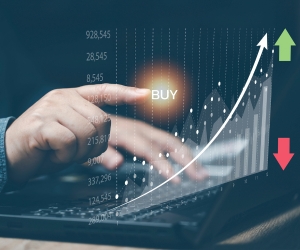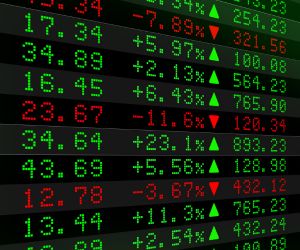This guide delves into the essential aspects of trading the Hang Seng, from understanding the index to exploring various trading strategies. Discover why the Hang Seng is a cornerstone in many investment portfolios due to its diversification and liquidity benefits. Learn advanced techniques such as leverage, pair trading, and algorithmic trading to enhance your trading. We also cover essential tools and resources, including research platforms, educational materials, and trader communities that keep you informed and connected. Additionally, our guide emphasizes the importance of emotional control, robust risk management, and continuous learning to successfully navigate the complexities of the market. Finally, we offer practical insights to guide you in creating a detailed trading plan and leveraging technology to refine your strategies. Dive in to equip yourself with the knowledge and tools necessary to successfully trade the Hang Seng.

How to Trade the Hang Seng Index
The Hang Seng Index (HSI) is Hong Kong's most important stock index and one of the most traded in Asia. It groups the main companies listed on the Hong Kong Stock Exchange (HKEX), many of which are closely tied to the Chinese economy. Its high volatility and correlation with global markets make it an attractive instrument for Forex and stock index traders.
Features of the Hang Seng in Trading
High Volatility: It exhibits significant price movements, influenced by the Chinese market, the policies of the People's Bank of China (PBOC), and international capital flows.
High Liquidity: It is one of Asia's most liquid indices, with competitive spreads on CFD and futures platforms.
Sensitivity to China: It responds to economic data, regulations, and trade policies of the Asian giant.
Trading Hours: Available during Asian sessions, with extended access in some markets, allowing trading almost 24/5.
Instruments to Trade the Hang Seng
Hang Seng Futures: Derivative contracts traded on the HKEX, ideal for leveraged exposure to the index.
CFDs on the Hang Seng: Popular among retail traders for their accessibility and lower operating costs.
Hang Seng ETFs: An option for investors who prefer exposure without resorting to derivatives.
Options on the Hang Seng: Useful for hedging or speculation strategies with limited risk.
Trading Strategies for the Hang Seng
1. Trading in Asian Sessions
The HSI shows volatility spikes at the start of the Asian session. Traders can capitalize on these movements with:
Opening Breakout: Identify ranges in the first hour and trade in the direction of the breakout.
Scalping: Use momentum indicators to take advantage of initial volatility.
2. Trend Strategy
The Hang Seng tends to form marked trends over extended periods. Some useful tools include:
Moving Averages (50 and 200): Detect trend changes through crossovers.
Price Channels: Trade on dynamic supports and resistances within the trend.
3. Pullbacks and Reversals
After rapid movements, the index often offers reversal opportunities. Recommended strategies:
Fibonacci: Identify retracement levels after major impulses.
RSI: Enter oversold or overbought zones when the index shows exhaustion.
4. Correlations and Sentiment
The Hang Seng is influenced by other markets and assets, such as:
Shanghai Composite: A bullish Chinese market can boost the HSI.
U.S. Indexes (S&P 500, Nasdaq): Movements on Wall Street impact the Asian session.
USD/CNH: Yuan weakness tends to push the index downwards.
Risk Management When Trading the Hang Seng
Stop-Loss: Essential to protect against the high volatility of the index.
Leverage Control: Avoid excessive levels that magnify losses.
News Monitoring: Stay alert to macroeconomic events, Chinese regulations, and data such as PMI.
Psychological Discipline: Avoid impulsive trading during periods of high uncertainty.
SWOT Analysis of the Hang Seng as an Index
This SWOT analysis evaluates the Hang Seng, the main stock index of Hong Kong, considering its relevance in the context of the Asian economy and the challenges arising from geopolitical tensions and its relationship with China.
Strengths:
Concentration of leading companies: The Hang Seng gathers the top companies in Hong Kong, reflecting the strength of the region's financial and commercial sector.
Access to global markets: Hong Kong's strategic position as a financial center facilitates the entry of international capital.
Weaknesses:
Exposure to geopolitical tensions: The relationships between China and the West and political uncertainty in the region can affect the stability of the index.
Dependence on the Chinese environment: Hong Kong's economy is heavily influenced by China's economic performance and policies.
Opportunities:
Regional integration: Growing economic cooperation in Asia can strengthen the Hang Seng and attract foreign investments.
Innovation in financial services: The expansion of digital and fintech services in Hong Kong can enhance the competitiveness of the index.
Threats:
Political instability: Crises and changes in the political environment, both in Hong Kong and China, can generate volatility in the index.
Economic risks: A slowdown in the Chinese economy can negatively affect the companies comprising the Hang Seng.
What is an International Stock Broker?
An International Stock Broker is the entity (or platform) that allows you to buy and sell shares of companies listed on stock exchanges in various countries around the world. Unlike a local broker, its main focus is on providing access to global markets, such as the American, European, or Asian markets.
Why do we need an International Stock Broker?
Investing in international stocks can be an excellent way to diversify your portfolio, as it gives you the opportunity to participate in the growth of economies and sectors worldwide. However, trading in global markets is not as simple as trading in the local market: it requires specific knowledge, adherence to international regulations, and the use of advanced trading platforms.
An International Stock Broker brings all these investment opportunities together in one place and allows you to access different exchanges and trading conditions, in exchange for a commission.
Examples and Comparisons:
There are several well-known International Stock Brokers, such as Interactive Brokers, eToro, TD Ameritrade, or Saxo Bank, among others. Each offers trading platforms with particular features and commissions that vary according to the service. Some stand out for providing market advice and analysis in several languages, while others may offer more competitive operational costs or social investment tools. These details allow you to choose the option that best suits your needs and investor profile.
Regulatory and Security Aspects
It is essential that the International Stock Broker you choose is regulated by recognized entities in the country where it operates, such as the U.S. Securities and Exchange Commission (SEC) in the United States, the Financial Conduct Authority (FCA) in the United Kingdom, or the Securities and Exchange Commission of Brazil (CVM), among others. This oversight ensures that the broker complies with strict security and transparency standards, providing you with greater confidence when investing your money.
How Do Brokers "Connect" to International Markets?
Through agreements with foreign stock exchanges and the use of advanced technological platforms, International Stock Brokers process the buy and sell orders placed by their clients. They arrange transactions according to price, order of arrival, and other parameters, and charge a commission when the transaction is executed. This technological infrastructure allows trades to be executed quickly and securely, facilitating real-time tracking of your investments.
In conclusion, an International Stock Broker is your gateway to the most important stock markets in the world. Thanks to its regulation, trading platforms, and knowledge of global markets, you can diversify your portfolio and seek growth opportunities in different sectors and countries.





